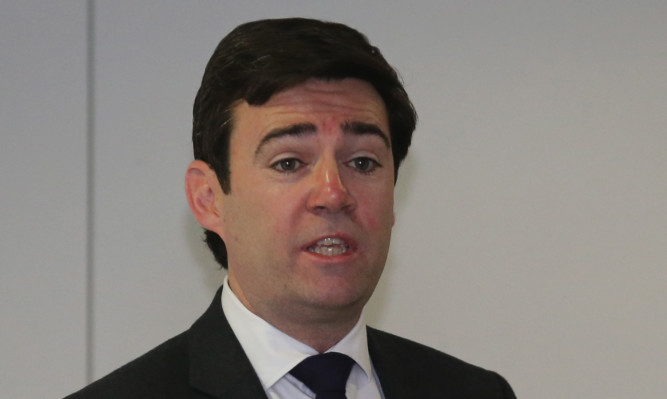Labour bitter divisions over Britain’s Trident nuclear deterrent may prove irreconcilable, Shadow Home Secretary Andy Burnham has warned, as Jeremy Corbyn unexpectedly pulled out of a showdown with his top team.
The shadow cabinet had been expected to discuss proposals for the future of the deterrent at its weekly meeting at Westminster, only for the debate to be postponed at the last minute.
The move comes after shadow defence secretary Emily Thornberry – who, like Mr Corbyn, supports unilateral nuclear disarmament – was given a rough ride when she briefed Labour MPs and peers on her thinking on Monday evening.
Mr Burnham, who backs Trident renewal, said that her hostile reception for some MPs underlined how difficult it was going to be for the party to come to an agreed position on the issue.
In an apparent side-swipe at Mr Corbyn’s suggestion that a future Labour government could retain the Trident submarines but they would put to sea without their nuclear warheads, he said “hybrid options …. just don’t work”.
He told BBC Radio 4’s Today: “There are two positions here which are difficult to reconcile – maybe impossible to reconcile – and the party has got to find some way of accommodating those positions and move forward and don’t let this issue take over everything.”
Following her appearance before the Parliamentary Labour Party, critics ridiculed Ms Thornberry’s performance as “waffly and incoherent” and accused her of living in “la la land”.
She insisted, however, the debate on the future of the deterrent did not necessarily come down to the “binary option” of renewing Trident or scrapping it and there were “more subtleties” than had been suggested to Mr Corbyn’s plan.
Party policy, she said, needed to take account of the fact that technological advances – such as underwater drones – may mean the submarines which carry the nuclear missiles will soon no longer be undetectable, undermining the effectiveness of the deterrent.
“If we are being left behind by technology, if there is a possibility of cyber attack, if there is the development of drones, then actually these nuclear deterrents may not in fact be nuclear deterrents and that is the issue we need to debate,” she told the Today programme.
“The idea of the Trident replacement is that it can hide in the sea. If technology is moving faster than that, then it may well be that Trident will not be able to hide. If that’s right, if we are to bet everything on mutually assured destruction, we have to be assured that it is going to work.”
Her comments were dismissed by Admiral Lord West, a former head of the Royal Navy and security minister in Gordon Brown’s government, who warned he would quit Labour if it became a “pacifist” party.
“There is nothing to indicate this will happen anywhere in the near future. Emily comes from a stance of wanting unilateral nuclear disarmament and is therefore casting around for some way of arguing it,” he told BBC Radio 4’s The World at One.
